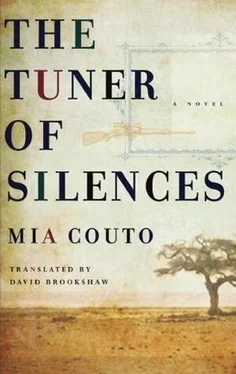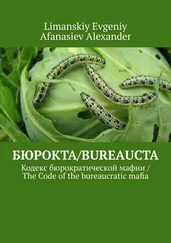Mia Couto
The Tuner of Silences
The entire history of the world is nothing more than
a book of images that reflect the blindest and most
violent of human desires: the desire to forget.
Herman Hesse, Journey to the East
I am the only man aboard my ship.
The rest are monsters devoid of speech,
Tigers and bears I lashed to the oars,
And my disdain reigns over the sea.
[. .]
And there are moments when I nearly forget
A return of boundless delight.
My homeland is where the wind passes,
My beloved is where roses are in flower,
My desire the wing-print of birds,
I never wake from this dream nor ever sleep.
Sophia de Mello Breyner Andresen
I, MWANITO, THE TUNER OF SILENCES
I listen, unaware
Whether what I hear is silence
Or god.
[…]
Sophia de Mello Breyner Andresen
I was eleven years old when I saw a woman for the first time, and I was seized by such sudden surprise that I burst into tears. I lived in a wasteland inhabited only by five men. My father had given the place a name. It was called, quite simply, Jezoosalem. It was the land where Jesus would uncrucify himself. And that was the end of the matter, full stop.
My old man, Silvestre Vitalício, explained to us that the world had come to an end and we were the only survivors. Beyond the horizon lay territory devoid of any life, that he referred to vaguely as “Over There.” The entire planet could be summed up in a nutshell like this: stripped of people, with neither roads nor traces of any living creature. In those faraway places, even tormented souls had become extinct.
In Jezoosalem, on the other hand, there were only the living. Folk knew nothing of what it was like to yearn for the past or hope for the future, but they were alive. There we were, so alone that we didn’t even suffer from any illnesses, and I believed we were immortal. Round about us, only animals and plants died. And when there was a drought, our nameless river faded into untruth, becoming a little stream that flowed around the back of our camp.
Mankind consisted of me, my father, my brother Ntunzi and Zachary Kalash, our servant who, as you will see, was not a man of any presence at all. And there was no one else. Or almost no one. To tell you the truth, I forgot two semi-inhabitants: the jenny, Jezebel, who was so human that she satisfied the sexual needs of my old father. And I also forgot my Uncle Aproximado. This member of the family needs special mention, for he didn’t live with us in the camp. He lived next to the entrance gate to the game reserve, well beyond the permitted distance, and he only visited us from time to time. From where we lived to his hut was a farness full of hours and wild animals.
For us children, Aproximado’s arrival was an excuse for great rejoicing, a jolt to our tedious routine. Uncle would bring us provisions, clothes, the basic necessities of life. My father would step out nervously to meet the truck piled high with our goods. He would intercept the visitor before he passed the fence that surrounded our dwellings. At this point, Aproximado was obliged to wash himself, so as not to bring in any contamination from the city. He would wash himself with earth and with water, no matter whether it was cold or whether night had fallen. After his bath, Silvestre would unload the truck, hurrying his delivery and hastening his departure. In a flash, quicker than a wing beat, Aproximado would once again disappear beyond the horizon before our anguished gaze.
— He’s not a real brother — Silvestre would justify himself. — I don’t want too much talk, the man doesn’t know our customs.
This little cluster of humanity, joined like the five fingers on a hand, was, however, divided: my father, Uncle and Zachary were dark-skinned; Ntunzi and I were black as well, but had lighter skin.
— Are we a different race? — I asked one day.
My father replied — No one is from one race alone. Races —he said— are uniforms we put on.
Maybe Silvestre was right. But I learnt too late that the uniform sometimes sticks to the soul of men.
— You get that light skin from your mother, Dordalma. Little Alma had a touch of mulatto in her —Uncle explained.

Family, school, other people, they all elect some spark of promise in us, some area in which we may shine. Some are born to sing, others to dance, others are born merely to be someone else. I was born to keep quiet. My only vocation is silence. It was my father who explained this to me: I have an inclination to remain speechless, a talent for perfecting silences. I’ve written that deliberately, silences in the plural. Yes, because there isn’t one sole silence. Every silence contains music in a state of gestation.
When people saw me, quiet and withdrawn in my invisible sanctum, I wasn’t being dumb. I was hard at it, busy in body and soul: I was weaving together the delicate threads out of which quiescence is made. I was a tuner of silences.
— Come here, son, come and help me be quiet.
At the end of the day, the old man would sit back in his chair on the veranda. It was like that every night: I would sit at his feet, gazing at the stars high up in the darkness. My father would close his eyes, his head swaying this way and that, as if his tranquillity were driven by some inner rhythm. Then, he would take a deep breath and say:
— That was the prettiest silence I’ve ever heard. Thank you, Mwanito.
It takes years of practice to remain duly silent. I had a natural gift for it, some ancestral legacy. Maybe I inherited it from my mother, Dona Dordalma, who could be sure? She was so silent, she had ceased to exist and no one even noticed that she no longer dwelt among us, the lively living.
— You know son: there’s the stillness of cemeteries. But the quiet of this veranda is different.
My father. His voice was so discreet that it seemed just another type of silence. He coughed a bit and that hoarse cough of his was a hidden speech, without words or grammar.
In the window of the next house, the flickering light of an oil lamp could be seen. My brother was keeping an eye on us for sure. My heart was scuffed with guilt: I was the chosen one, the only one to share intimacies with our eternal progenitor.
— Aren’t we going to call Ntunzi?
— Leave your brother to himself. You’re the one I like to be alone with.
— But I’m almost falling asleep, Father.
— Just stay a bit longer. I’ve got so much rage inside me, so much pent-up rage. I need to drown this rage, and I haven’t got the strength.
— What rage is this, Father?
— For many years, I gave sustenance to wild beasts thinking they were household pets.
I was the one who complained of feeling sleepy, but he was the one who was falling asleep. I left him nodding off in his chair and went back to the room where Ntunzi was waiting for me, wide awake. My brother looked at me with a mixture of envy and commiseration:
— Did he give you all that nonsense about silence again?
— Don’t talk like that, Ntunzi.
— That old man’s gone mad. And to top it all off the guy doesn’t like me.
— He does.
— Why doesn’t he ever call me then?
— He says I’m a tuner of silences.
— And do you believe him? Can’t you see it’s all a big lie?
Читать дальше













